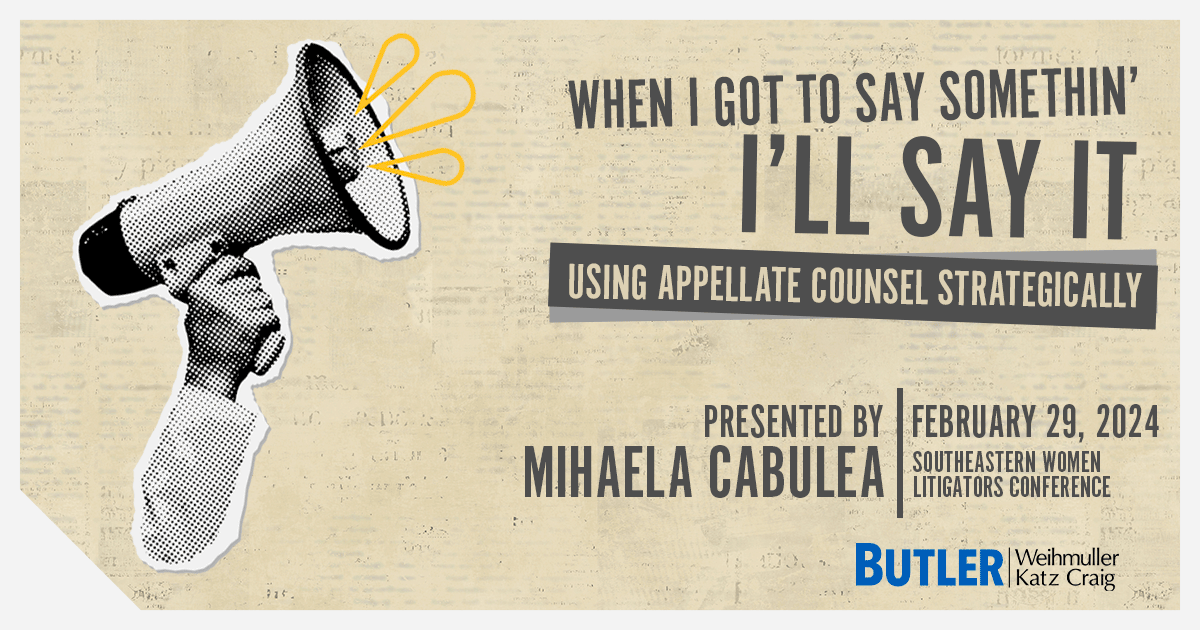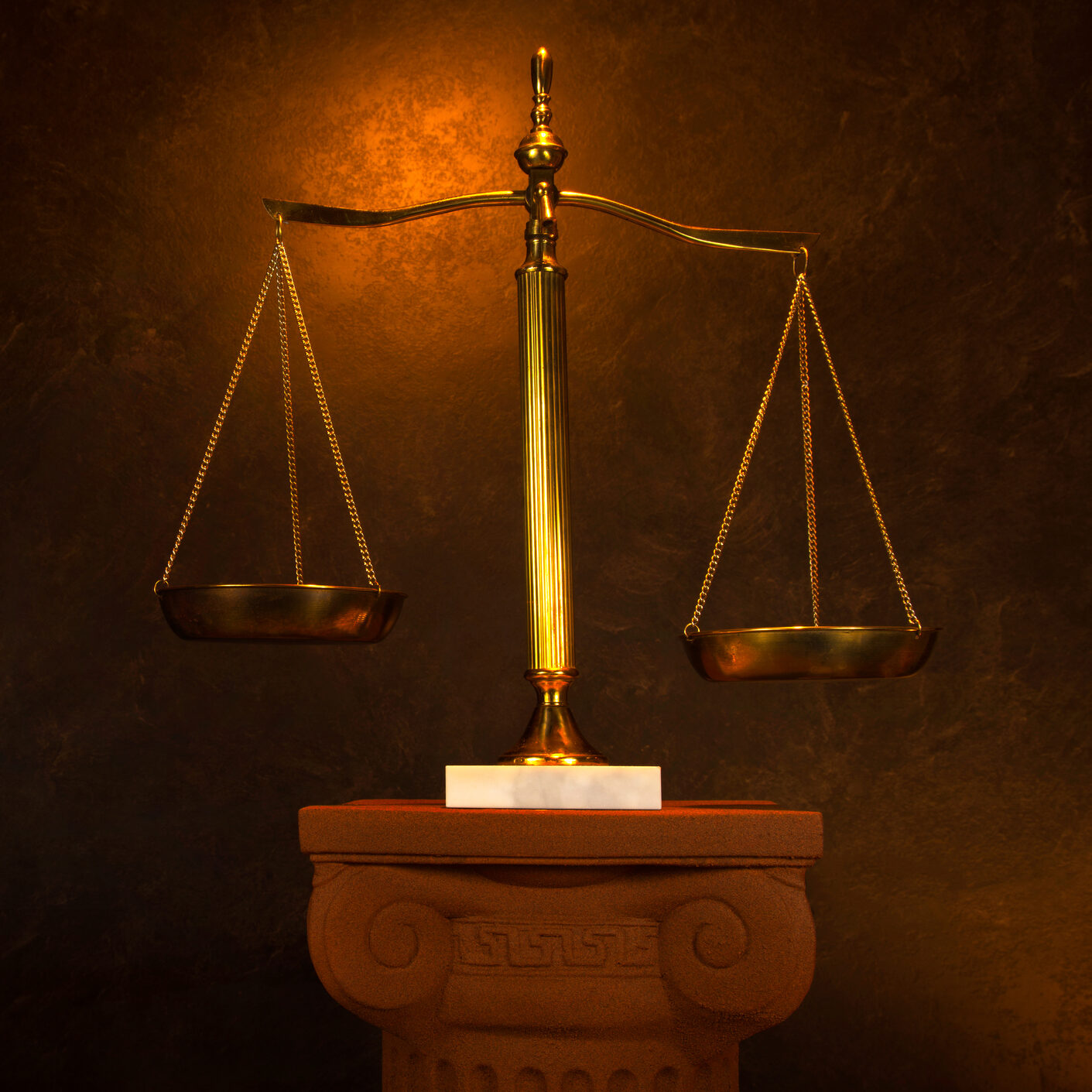
When I Got to Say Somethin’, I’ll Say It: Using Appellate Counsel Strategically
By Mihaela Cabulea | Events
February 27, 2024
Partner | Appellate, First-Party Coverage, Extra-Contractual, Third-Party Coverage
813-281-1900
mcabulea@butler.legal
Overview | Blog Posts | Appellate | Mihaela Cabulea | Related | Print | Share
In Hazuri, the jury sent the judge a note asking to see trial transcripts. Hazuri, 91 So. 3d at 839. The defendant argued that the correct procedure was to tell the jury that transcripts were not available but that the judge could read back to the jury any testimony it wanted. Id. The trial court disagreed and instructed the jury that transcripts were not available and that the jury should rely on its “collective recollection” of the evidence to decide the case. Id. On appeal, the Florida Supreme Court adopted “the following two rules: (1) a trial court should not use any language that would mislead a jury into believing read-backs are prohibited, and (2) when a jury requests trial transcripts, the trial judge should deny the request, but inform the jury of the possibility of a read-back.” Id. at 846.
The Duignan court noted that at the time Hazuri was decided, Florida Rule of Criminal Procedure 3.410 “contained a one-sentence, discretion-conferring provision that a trial court ‘may’ read back trial testimony to a jury.” Duignan, 243 So. 3d at 435. The Duigan court acknowledged that rule 3.410 was subsequently amended “to regulate a trial court’s communication with a jury concerning readbacks in more detail and in a manner consistent with Hazuri.” Id. n.6 (citing Fla. R. Crim. P. 3.410 (2017)). The court noted that although adoption of a similar civil rule to address read backs was contemplated, there was no corollary in the civil rules to Florida Rule of Criminal Procedure 3.410. Id. at 435.
On March 30, 2023, the Florida Supreme Court adopted Florida Rule of Civil Procedure 1.453, proposed by the Civil Procedure Rules Committee as a counterpart to Florida Rule of Criminal Procedure 3.410. Subdivision (a) of the new rule explains the procedure a trial court must follow when a jury requests a playback or read back of trial testimony. Subdivision (b) explains the procedure a trial court must follow when a jury requests a transcript of trial testimony. The rule provides as follows:
|
RULE 1.453. JURY REQUEST TO REVIEW TESTIMONY (a) Request for Readback or Playback of Testimony. If, after retiring to consider their verdict, any juror requests a readback or playback of testimony, the jury may be conducted into the courtroom and the court may order the readback or playback of testimony. The testimony may be read or played back only after notice to counsel for the parties. Any readback or playback of testimony must be in open court in the presence of all parties. In its discretion, the court may respond in writing to a request for readback or playback of testimony without having the jury brought before the court, provided that the parties have received the opportunity to place objections on the record and both the request and response are made part of the record. (b) Request for Transcripts. If any juror requests to have a transcript of trial testimony, the court must inform the jury that transcripts are not available but that they can request a readback or playback of testimony, which request may or may not be granted at the court’s discretion. If a juror makes only a general request for transcripts, as opposed to identifying any particular witness’s testimony that they wish to review, the court must also instruct the jury that, if they request a readback or playback, they must specify the particular trial testimony they wish to have read or played back. If, after being properly instructed in accordance with this subdivision, the jury requests a readback or playback of any trial testimony, the court must follow the procedures set forth in subdivision (a). |
The rule is effective immediately, upon release of the Supreme Court’s decision. The procedures outlined in the rule are straightforward. The rule gives the trial court discretion on how to handle readback requests by the jury, provided the parties have the opportunity to place objections on the record and that both the request and the response are made part of the record. Thus, it is important for trial counsel to make any objection under new rule 1.453 part of the record or else the objection would be deemed waived.

By Mihaela Cabulea | Events
February 27, 2024


By Carol Rooney | News
November 7, 2023

By Mihaela Cabulea | Events, Webinars
September 18, 2023

By Matthew Lavisky | Events
August 16, 2023